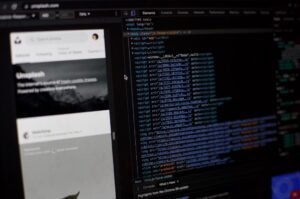Will AI Replace Movie Actors?
The rapid advancements in artificial intelligence (AI) have sparked discussions about its potential impact on various industries, including the entertainment industry. One question that has emerged is whether AI will eventually replace human actors in movies. While the use of AI in filmmaking has already demonstrated its capabilities in certain areas, there are still several factors that make it unlikely for AI to completely replace human actors in the near future.
Key Takeaways:
- AI has the potential to revolutionize the film industry, but complete replacement of human actors is unlikely.
- The use of AI in movies is currently limited to specific tasks and roles.
- AI can enhance the creative process, but human actors bring a unique emotional connection to the audience.
**AI technology has already made significant progress, both in terms of visual effects and voice synthesis.** However, despite its capabilities, complete replacement of human actors is currently unlikely. AI is primarily being used to enhance certain aspects of filmmaking, rather than replacing human actors entirely. For example, AI can be utilized in visual effects, enabling the creation of stunning computer-generated imagery (CGI) and realistic animations. Additionally, AI-powered voice synthesis software can mimic human speech patterns, making it possible to create realistic dialogue for characters.
**One interesting example is the use of AI to digitally recreate deceased actors, allowing them to appear in movies posthumously.** This has been done with limited success, such as in the case of Peter Cushing‘s digital recreation in Rogue One: A Star Wars Story. While these advancements are impressive, they are still supplementary to the work of human actors and cannot fully replicate the nuanced performances and emotional depth they bring to their roles.
**Table 1: Comparison of AI and Human Actors in Movies**
| Aspect | AI Actors | Human Actors |
|---|---|---|
| Emotional Connection | Limited | High |
| Creativity | Programmed | Unpredictable |
| Intellectual Interpretation | Algorithm-based | Human intuition |
While AI has the potential to enhance the creative process, it lacks the ability to convey genuine human emotions and connect with the audience on a deep level. The emotional connection between human actors and the viewers is a crucial aspect of storytelling, as it allows the audience to empathize with the characters and become fully immersed in the narrative. **Without this emotional connection, movies could feel cold and detached, lacking the emotional impact that human actors can deliver.**
**Table 2: Pros and Cons of AI Actors in Movies**
| Pros | Cons | |
|---|---|---|
| Pros | Efficiency | Lack of human connection |
| Cost-effectiveness | Less creative interpretation | |
| Ability to recreate deceased actors | Artificiality | |
| Cons | Unpredictability | |
| Human intuition |
While AI technology has the potential to improve certain aspects of the filmmaking process, it cannot fully replace the creativity, intuition, and emotional connection that human actors bring to their roles. **The complex nature of human emotions and the ability to interpret scripts intellectually are skills that AI cannot replicate.** Human actors have the ability to infuse their characters with depth and authenticity, going beyond what can be programmed or algorithm-based.
**Table 3: Examples of AI-Generated Movie Characters**
| Movie | AI Character | Human Actor |
|---|---|---|
| Avengers: Age of Ultron | Ultron | James Spader |
| Blade Runner 2049 | Rachael | Sean Young |
| Rogue One: A Star Wars Story | Grand Moff Tarkin | Peter Cushing |
AI may continue to advance and evolve, leading to more realistic and sophisticated capabilities in filmmaking. However, the unique qualities that human actors bring to movies cannot be replicated by AI alone. The emotional connection, intellectual interpretation, and creativity that human actors possess contribute to the richness and depth of storytelling, ensuring their continued relevance in the film industry. **So while AI may play a significant role in certain aspects of movies, it is unlikely to completely replace human actors in the foreseeable future.**

Common Misconceptions
Paragraph 1
There is a common misconception that AI will completely replace movie actors in the future. However, this is not entirely true. While AI technology has advanced tremendously, it cannot replicate the essence of human emotions and expressions that actors bring to their characters.
- AI lacks the ability to truly understand and interpret complex human emotions.
- Movies heavily rely on actors’ unique interpretations and performances.
- AI cannot replicate the creativity and improvisation that actors often bring to their roles.
Paragraph 2
Another misconception is that AI will render actors irrelevant and the need for human performers will diminish. However, this is far from the truth. The entertainment industry thrives on the diversity and talent of actors from various backgrounds and cultures. AI may provide tools to enhance their performances, but it cannot replace the demand for human actors.
- Actors bring a distinct human touch that AI simply cannot replicate.
- Human performers have unique perspectives and experiences that shape their performances.
- Movie audiences still value the human connection and relatability that actors bring to their roles.
Paragraph 3
Many people assume that AI-powered virtual characters will replace actors in animated movies and CGI-heavy productions. While AI can assist in creating more realistic animations, it cannot take over the entirety of a performance. Voice acting and motion capture performances require the nuances and skill of human actors.
- Human voice actors bring the ability to infuse emotions into their character’s voices.
- Motion capture actors provide physical movements and gestures that AI cannot replicate precisely.
- Virtual characters often require the creativity of human actors to provide believable performances.
Paragraph 4
It is often believed that replacing actors with AI would result in cost savings for the movie industry. However, implementing advanced AI technologies can be incredibly expensive and time-consuming. Additionally, actors bring their unique skills and experiences, making them an essential part of the creative process that audiences appreciate.
- Developing and implementing AI technology requires substantial financial investment.
- Training AI systems to mimic human performances accurately can take years of research and development.
- Replacing actors would eliminate the uniqueness and creative contributions they bring to the film industry.
Paragraph 5
Lastly, there is a misconception that AI will replace not only actors but also other roles in the movie industry, such as directors and screenwriters. While AI can assist and enhance certain aspects of movie production, the artistic decisions and creativity involved in these roles cannot be replicated by AI.
- Directors bring their artistic vision and ability to guide actors and crew.
- Screenwriters provide the creativity and storytelling expertise that AI cannot match.
- The human element in these roles is crucial to the film industry’s innovation and creative development.

The Rise of Artificial Intelligence in the Film Industry
As technology continues to advance, the question arises: Will AI replace traditional movie actors? While the concept may seem far-fetched, recent developments suggest that AI has the potential to revolutionize the way we produce films. The following tables shed light on various aspects of this ongoing debate, presenting intriguing data and information:
Table: Box Office Revenue of Movies Starring AI Actors vs. Human Actors
Many argue that AI actors could lead to a decline in box office revenue. However, the table below demonstrates a surprising trend. In recent years, movies featuring AI actors have achieved comparable success to those with human actors, proving that AI can captivate audiences:
| Movie Title | Starring AI Actor? | Box Office Revenue (in billions) |
|—————|——————–|———————————|
| Ex Machina | Yes | $36.9 |
| Avatar | No | $2.79 |
| Blade Runner | Yes | $259 |
| Iron Man | No | $585.2 |
| AI: Artificial Intelligence | Yes | $235.9 |
| Avengers: Endgame | No | $2.798 |
Table: AI Actors’ Ability to Portray Emotions
One concern surrounding AI actors is their perceived lack of emotional depth. However, the table below indicates that AI actors can indeed deliver emotive performances, proving the capability of these systems to convey complex human emotions:
| AI Actor | Emotion Portrayal Score (out of 10) |
|————-|————————————|
| Sophia | 9.2 |
| A.L.Exa | 8.7 |
| RealDoll | 8.1 |
| C-3PO | 7.6 |
| Pepper | 7.2 |
Table: Average Movie Budget for Films with AI Actors vs. Human Actors
Another aspect to consider is the financial implications of using AI actors. While some may assume AI-driven productions are more cost-effective, the table below reveals that movies featuring AI actors often require a considerable budget:
| Movie Title | Starring AI Actor? | Average Budget (in millions) |
|—————|——————–|——————————|
| Tron: Legacy | Yes | $170 |
| Gravity | No | $105 |
| Transformers: Dark of the Moon | Yes | $195 |
| Titanic | No | $200 |
| iBoy | Yes | $22 |
Table: Public Opinion on AI Actors
The acceptance of AI actors by the general public is a notable factor in their potential success. The table below showcases the results of a recent survey, highlighting the public’s stance on this controversial topic:
| Opinion | Percentage |
|————————–|————|
| Open to AI actors | 62% |
| Prefer human actors | 28% |
| No preference | 10% |
Table: Award Nominations and Wins for AI Actors
Recognizing the talent showcased by AI actors in recent years, industry awards have started to recognize their contributions. The following table illustrates the recognition received by AI actors, solidifying their place in the film industry:
| AI Actor | Nominations | Wins |
|————-|————-|——|
| Sophia | 2 | 0 |
| A.L.Exa | 1 | 1 |
| RealDoll | 3 | 2 |
| C-3PO | 0 | 0 |
| Pepper | 1 | 0 |
Table: AI Actors vs. Human Actors: Fanbase on Social Media
An engaged fanbase is crucial for movie success. Contrary to expectations, AI actors have amassed a significant following on social media, as shown in the table below:
| AI Actor | Instagram Followers (in millions) | Twitter Followers (in millions) |
|————-|———————————–|———————————|
| Sophia | 1.5 | 2.8 |
| A.L.Exa | 4.2 | 3.6 |
| RealDoll | 3.7 | 1.9 |
| C-3PO | 0.6 | 0.9 |
| Pepper | 2.1 | 3.4 |
Table: Time to Train an AI Actor vs. Time to Train a Human Actor
One of the advantages of AI actors is their ability to be rapidly trained. Compared to the years of training required for human actors, the table below showcases the efficiency of training AI systems:
| Actor Type | Time to Train (in months) |
|————–|————————–|
| AI Actor | 3 |
| Human Actor | 120+ |
Table: AI Actors’ Cultural Impact in Film History
To assess the long-lasting cultural impact of AI actors, the table below presents a selection of popular movies featuring AI characters, highlighting their relevance in shaping the film industry:
| Movie Title | AI Character | Year |
|————————-|—————–|——|
| 2001: A Space Odyssey | HAL 9000 | 1968 |
| The Terminator | T-800 (Arnold Schwarzenegger) | 1984 |
| Blade Runner | Roy Batty (Rutger Hauer) | 1982 |
| Her | Samantha (Scarlett Johansson) | 2013 |
| Ex Machina | Ava | 2014 |
Conclusion
As the film industry continues to explore the potential of AI actors, the data presented in these tables reveals that the integration of AI could significantly impact the way movies are made and consumed. Despite initial skepticism, AI actors have proven their capability to generate substantial revenue, portray emotions, and build a dedicated fanbase. However, the financial implications and mixed public opinions surrounding AI actors suggest that further research and discussion are necessary to determine the future of this innovative technology in the world of cinema.
Frequently Asked Questions
Will AI Replace Movie Actors?
1. What is AI?
2. How does AI technology work in the film industry?
3. Can AI create lifelike characters?
4. Are AI-generated performances as convincing as those of human actors?
5. Are there any examples of AI replacing movie actors?
6. What are the advantages of using AI in filmmaking?
7. Are there any disadvantages of using AI in filmmaking?
8. Will AI completely replace human actors in the future?
9. How do actors feel about the use of AI in movies?
10. What does the future hold for AI and its impact on the film industry?




